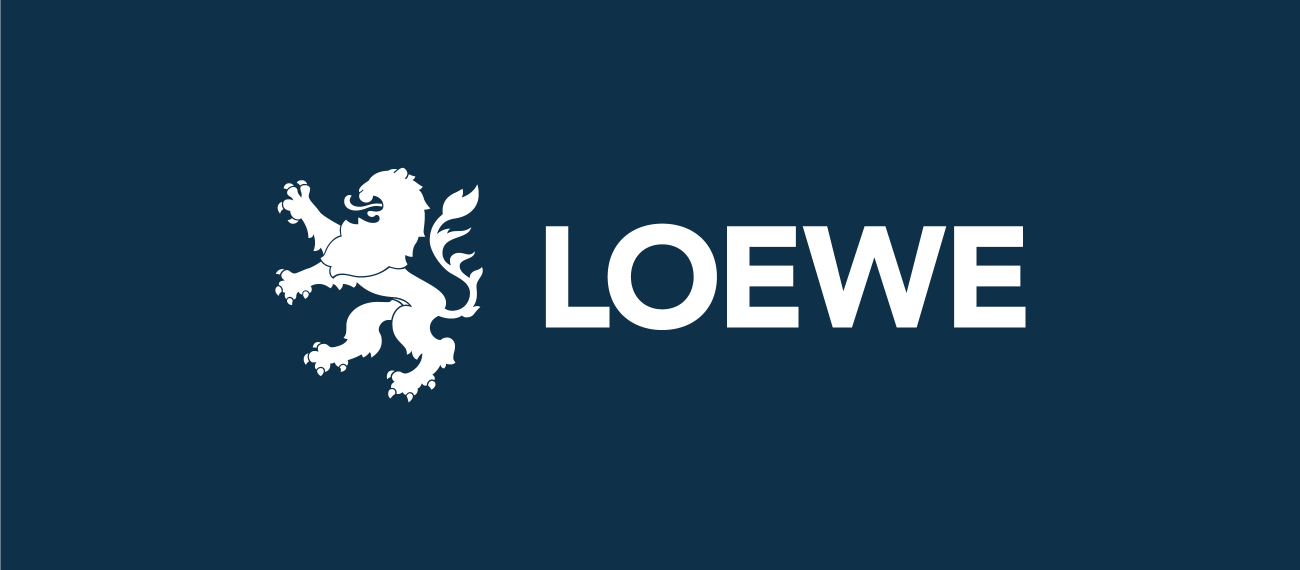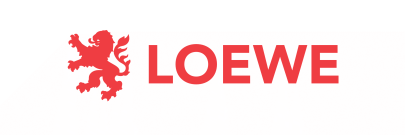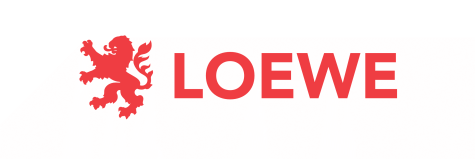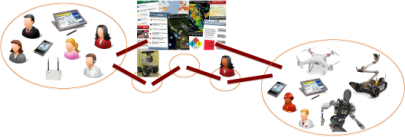LOEWE Research Programme
LOEWE is the research promotion programme that has been used by the federal state of Hessen since 2008 to set research policy trends, the objective being to give a sustainable boost to Hesse’s research landscape. LOEWE stands for “Landes-Offensive zur Entwicklung wissenschaftlich-ökonomischer Exzellenz” (state offensive for the development of scientific and economic excellence).Read more about the LOEWE programme and its research projects.
Research Center “emergenCITY”: The resilient Digital City
|
The LOEWE Research Center “emergenCITY” will develop solutions to provide emergency response to and with information and communication technologies in crisis situations, provide rapid assistance and support an efficient return to normality. Teams of 23 professors from computer science, electrical engineering and information technology, mechanical engineering, social and historical sciences, architecture, economics and law will conduct joint research in the university network. Th ecenter coordinatet by TU Darmstadt, partners are the University of Kassel and the University of Marburg. |
Coordinator: Prof. Dr.-Ing. Matthias Hollick, TU Darmstadt Funding period: 2020 – 2024 Funding: 31,4 Millionen Euro www.emergenCITY.de |
Focus Area “WhiteBox”
| Following our basic assumption, we will systematically develop and compare whitebox and blackbox models for artificial intelligence and human behavior. In order to quantify the differences between these models, we will not only develop novel blackbox and whitebox models, but also generate methods for the quantitative and interpretable comparison between these models. Particularly, we will develop new methodologies to generate explanations automatically by means of AI. As an example, deep blackbox models comprise deep neural networks whereas whitebox models can be probabilistic generative models with explicit and interpretable latent variables. Application of these techniques to intelligent goal directed human behavior will provide better computational explanations of human intelligent behavior as well as allow to transfer human level behavior to machines. |
Spokes Person Prof. Dr. Kristian Kersting, TU Darmstadt Prof. Constantin A. Rothkopf, TU Darmstadt Duration: 2021 – 2025 Funding: 4,7 Million Euro www.tu-darmstadt.de/whitebox |
Former LOEWE Centers and Focus Areas
Focus Area “Software-Factory 4.0”
| The LOEWE focus area Software Factory 4.0 (SF4.0) is a 4-year project funded by the German State of Hesse. SF4.0 is concerned with the adaptation of legacy software due to changed requirements and technical advances. The project strives to achieve this adaptation in an automated fashion. The main focus is on three topics: more flexible software systems in the context of the application area “Industrie 4.0”, the parallelization of existing software in the context of “High Performance Computing” (HPC), and simplification of the re-engineering in both areas. |
Spokes Person Prof. Dr.-Ing. Heiko Mantel, TU Darmstadt Duration: 2018 – 2022 Funding: 4,8 Million Euro www.software-factory-4-0.de |






